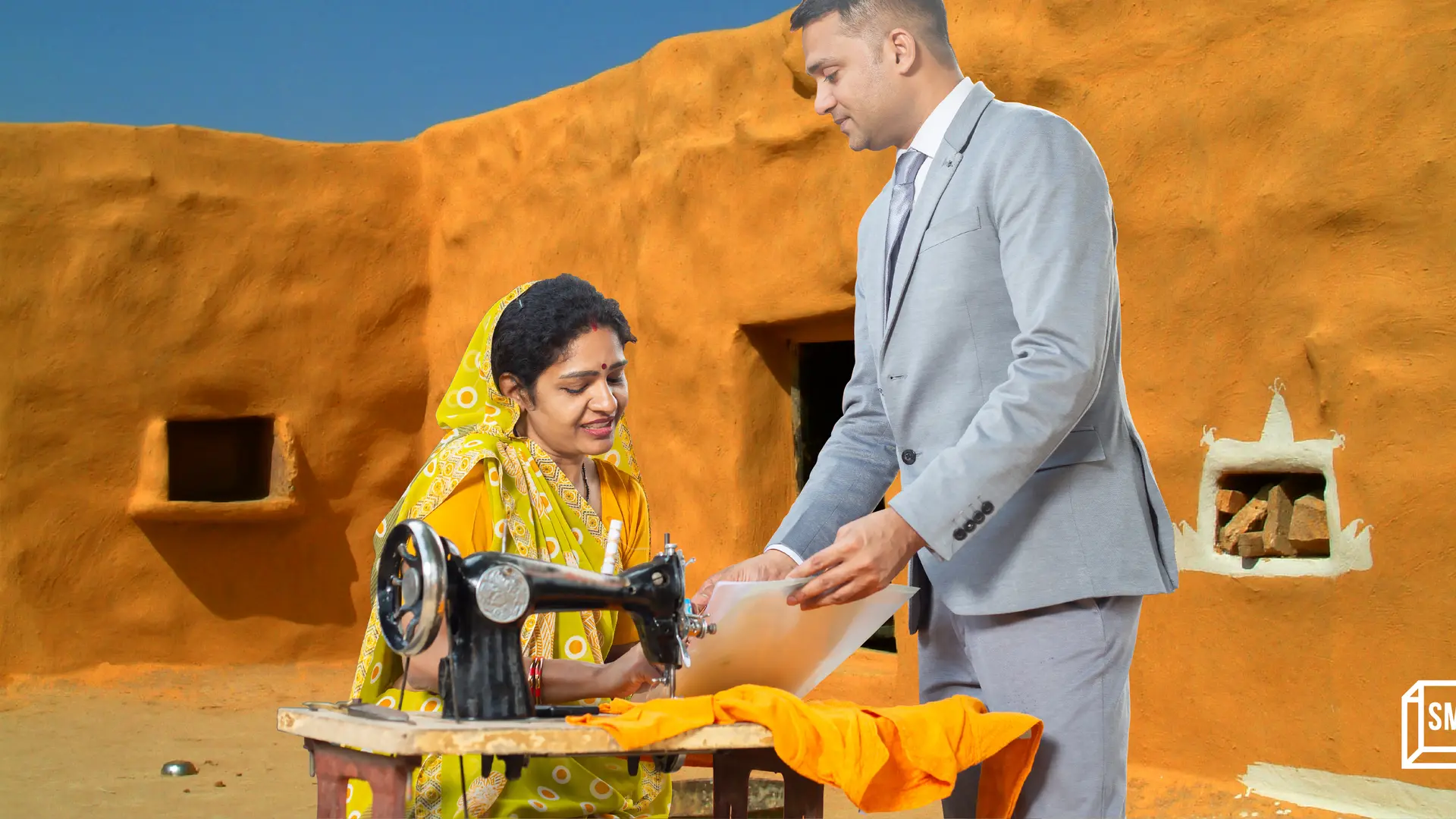This 80-year-old textbook publishing group clocks Rs 800 Cr turnover, goes digital in times of coronavirus
S Chand group prints and sells over 50 million textbooks every year, and launched Learnflix, a home learning app for students during coronavirus outbreak.
This made-in-India brand dates back to pre-independent India. Shyam Lal Gupta started a publishing house S Chand in 1939 to publish books written by Indian authors and make them available to students at an affordable price, thus reducing the penetration of foreign books in the market. The first textbook to be published by S Chand was ‘Textbook of Physical Chemistry’ by Prof Bahl & Tuli.
The brand, which is 80 years old, has been a part of most Indians’ school life. The books published by S Chand group have helped millions of Indian students crack school, board, and college/university exams.

Himanshu Gupta (L) Managing Director and Vinay Sharma (R), Head of Digital and Services at S Chand Group
Made in India
This made-in-India brand is unique because it internalises the spirit of a homegrown brand, unlike many others. It was established to give voice to Indian authors and academicians. In 1960, S Chand established its own printing press. The group clocked a turnover of approximately Rs 800 crore the year before last year and is led by Himanshu Gupta, the grandson of Shyam Lal Gupta.
Himanshu joined the company in 2000. The traditional business group publishes more than 50 million books annually at its factory in Okhla. The group is affiliated to over 40,000 schools (both CBSE and ICSE boards), and reaches out to almost 30 million students. In addition, the company has 3,500 employees. The books printed by S Chand are exported to 15 countries across Asia, the Middle-East, and Africa.
Himanshu, the third-generation entrepreneur believes that the group has undergone a major digital transformation over the years owing to the changing times and advancements such as internet boom, democratisation of internet and the increasing needs of people in the online space.
Himanshu says, “The books industry is gradually moving towards online education and we have made changes in the business according to the changing times.”
Himanshu believes that in today’s time, adopting a 360 degrees approach by providing solutions in all spaces is essential for sustaining the business in the long run.
Digital transformation
For a long time, the brand has been trying to get a foothold in the online space by making investments.
Not very long ago, S Chand invested in edtech startups such as Testbook. It has also launched a learning application called Mylestone, an end-to-end education solutions providers for teachers and students.
“We are an education content company. As users of today have started moving to other forms of content consumption, it was imperative for us to make the transition and ensure that we are present in other forms of content consumption as well.” says Vinay Sharma, Head of Digital and Services at S Chand. He joined the company in 2013.
In February this year, when the coronavirus pandemic broke out, S Chand launched Learnflix, a personalised home learning platform which provides comprehensive learning tools for students of Classes VI to X in two subjects - mathematics and science - under CBSE and ICSE syllabus.
Vinay also added that the coronavirus crisis has come as a blessing in disguise for the company. The physical books have not been able to reach the masses and coming up with this app at this point has helped in saving the Indian education system a lot of burden because of its heavy dependence on textbooks.
Vinay also says that the current times provide an opportunity to come up with personalised learning solutions. For users, he says, this situation has resulted in mindset change. “Today, this situation has put teachers and parents in a place where they have no option but to go digital which they were initially hesitating to.”
Learnflix is available in the B2B to B2C format in a subscription model. For Class VI students it is available for Rs 2,000 for one academic year and for Classes IX and X, it is available for Rs 2,500. The app has seen 22,000 sign ups since its launch.
Vinay says that until now, their publishing business was predominantly bringing in the revenues for the company and the digital revenue was less than 10 percent. The trend will however change in the coming months, he said.
The competition
The Indian education system has seen the emergence of several edtech startups which are grabbing a big pie of the education market. These startups have also been receiving venture capital funds.
How will a brand which is relatively new make a place for itself in the digital space?
Vinay says, “It is very important to understand the consumer behaviour in the education market. Moreover, we believe going digital ultimately means education remains the core, while technology is a mere facilitator in disseminating the education.”
Commenting on the challenges the business faces today, he says, “It is more about looking at what consumers need, formulating it, and being able to communicate to them that we have something valuable to offer.”
Edited by Javed Gaihlot









